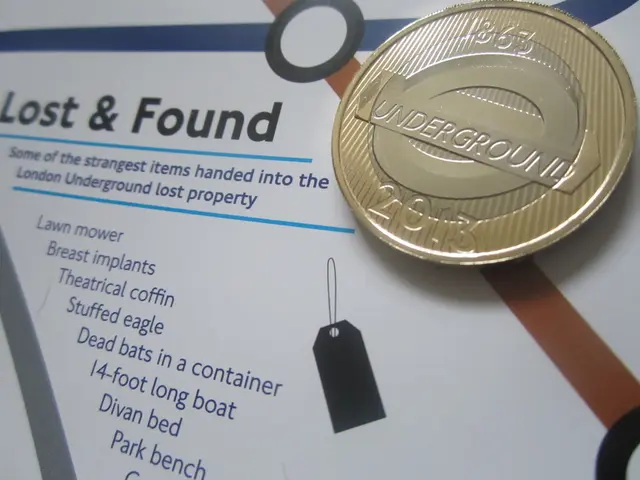Small Biz Innovation Slump: A Growing Chasm With Large Corps
Reinforcing Germany's Economic Landscape
Small and Medium Enterprises (SMEs) Fall Behind in Innovation Race
A recent KfW SME Panel analysis reveals a concerning trend: smaller businesses' innovative spirit is fading [1]. Between 2021 and 2023, 75% of medium-sized enterprises (SMEs) with 50 or more employees introduced at least one product innovation, contrasting with a mere 35% of businesses with fewer than five employees [1]. This research, spanning over 9,500 enterprises across sectors, was conducted between mid-February and mid-June 2024.
In the larger SME segment, the percentage of innovation pioneers increased by 5 percentage points compared to the 2020-2022 period, returning to pre-pandemic levels. However, innovation share among small SMEs dropped by 1 percentage point [1]. Compared to the 2018-2020 period, innovators among small SMEs are 4 percentage points fewer post-pandemic.
Fewer Play the Innovation Game
Over the past three years, approximately 1.5 million SMEs have introduced innovation. Innovation expenses remained relatively steady at around €34 billion compared to the previous year but dropped slightly in real terms. Nevertheless, these costs are increasingly concentrated among a shrinking number of innovators. According to KfW, top 2% of SMEs now account for 56% of innovation expenses [1].
The challenging economic situation has caused some enterprises to shy away from innovation activities, KfW asserts. Volker Zimmermann of KfW Research cautions: "If more and more companies cease to continuously update their production processes and product offerings, this could weaken Germany's long-term productivity growth and transformation potential" [1].
Unpacking the Divide
Several factors contribute to the innovation divide between large and small businesses. Among them are structural challenges in funding access, regulatory burdens, and resource disparities.
More established corporations often have easy access to capital, research partnerships, and established R&D pipelines [2][3]. Small enterprises, on the other hand, struggle with financing unproven models and scaling disruptive innovations, as commercial banks tend to steer clear of funding high-risk ventures [2]. Furthermore, startups with groundbreaking ideas often struggle to secure funding without government backing [2].
As a result, small businesses are at a disadvantage in maintaining and closing the innovation gap with large corporations. To foster a more level playing field, addressing these challenges is crucial for strengthening Germany's economic landscape.
- The study from KfW SME Panel indicates that smaller businesses are exhibiting fewer instances of innovation, with only 35% of businesses with fewer than five employees introducing product innovations between 2021 and 2023, compared to 75% of medium-sized enterprises with 50 or more employees.
- Volker Zimmermann of KfW Research has warned on Thursday that if the trend of fewer small businesses engaging in innovative activities continues, it could potentially weaken Germany's long-term productivity growth and transformation potential.
- KfW's research suggests that the expanding innovation costs are being concentrated among a decreasing number of innovators, with the top 2% of SMEs now accounting for 56% of innovation expenses.
- The innovation divide between large and small businesses is reportedly due to several factors, including structural challenges in funding access, regulatory burdens, and resource disparities, making it difficult for small enterprises to compete with the innovative capabilities of larger corporations.




